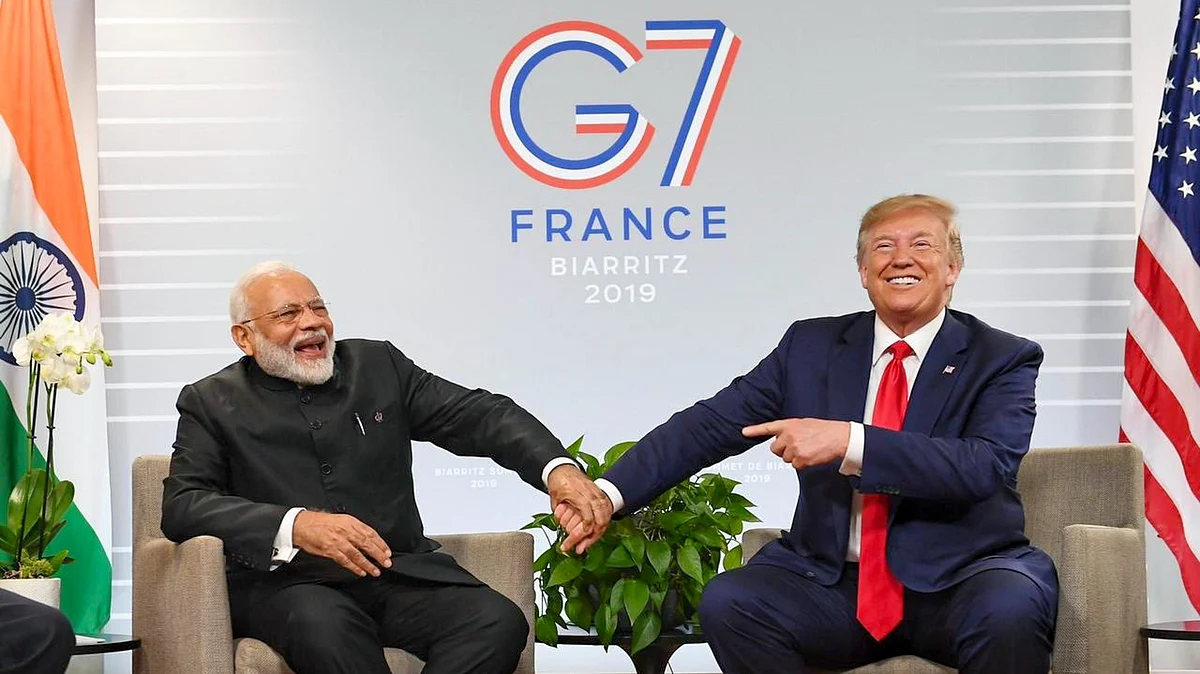India will not be buying oil from Russia, Trump repeats
The remarks come amid rising tensions between Washington and New Delhi over trade and energy policy

US President Donald Trump has claimed that India has “more or less stopped” purchasing oil from Russia, asserting that New Delhi has significantly reduced its imports as part of a “de-escalation” in energy ties with Moscow.
Speaking to the media during a bilateral lunch with Ukrainian President Volodymyr Zelenskyy on Friday, Trump said: “India will not be buying oil from Russia. They have already de-escalated and have more or less stopped. They are pulling back. They have bought about 38 per cent of the oil, and they won’t be doing it anymore.”
The remarks come amid rising tensions between Washington and New Delhi over trade and energy policy, following Trump’s decision to double tariffs on Indian goods to 50 per cent, including an additional 25 per cent duty linked to India’s previous purchases of Russian crude.
In response, India on Thursday reiterated that it was “broad-basing and diversifying” its sources of energy procurement based on market conditions. The statement was widely seen as a diplomatic response to Trump’s claim that Prime Minister Narendra Modi had assured him that India would halt imports of Russian oil.
Washington has for months accused India of indirectly helping to fund Moscow’s war effort in Ukraine by buying discounted Russian crude, even as New Delhi insists its purchases are guided by national interest and global market dynamics.
A spokesperson for India’s Ministry of External Affairs said that the country’s energy decisions were made “in line with its economic security and consumer needs.” New Delhi has repeatedly emphasised that its dealings with Moscow remain within the bounds of international law and do not violate sanctions.
Relations between the two nations have deteriorated sharply in recent weeks following the imposition of higher tariffs by the Trump administration.
India has described the move as “unfair, unjustified and unreasonable,” warning that it could harm bilateral trade ties and global supply chains.
Meanwhile, Trump has once again revisited his controversial claim that he helped avert a potential war between India and Pakistan earlier this year. Speaking at the same event, he said: “The Prime Minister of Pakistan said I saved millions of lives by interceding. You look at Pakistan and India as an example — that would have been a bad one for two nuclear nations.”
The US President has repeatedly asserted that Washington played a mediating role in the May ceasefire between India and Pakistan, following a series of cross-border drone and missile strikes. On 10 May, Trump announced on social media that both countries had agreed to a “full and immediate” cessation of hostilities after “a long night of talks” led by the United States.
However, Indian officials have firmly denied the claim, maintaining that the understanding on the ceasefire was reached directly between the Directors General of Military Operations (DGMOs) of the two militaries, without third-party mediation.
The agreement followed India’s launch of Operation Sindoor on 7 May, targeting terror infrastructure in Pakistan and Pakistan-occupied Kashmir in retaliation for the 22 April Pahalgam attack, which killed 26 civilians.
After four days of cross-border exchanges, India and Pakistan announced a ceasefire on 10 May, which New Delhi said was the result of direct military-level engagement rather than external intervention.
Despite Trump’s repeated assertions, India has made it clear that there was no foreign involvement in the process, a position it has consistently upheld in line with its long-standing policy of rejecting third-party mediation on bilateral issues with Pakistan.
With PTI inputs
Follow us on: Facebook, Twitter, Google News, Instagram
Join our official telegram channel (@nationalherald) and stay updated with the latest headlines
